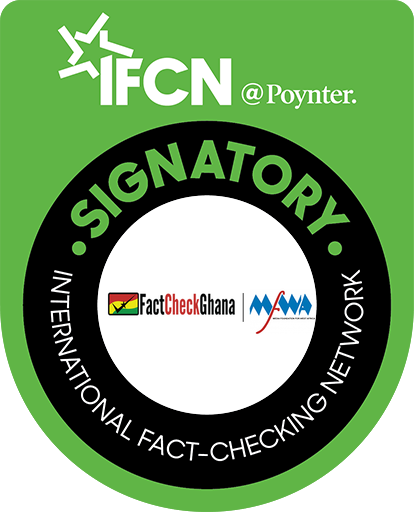Following the uproar that has emerged after North Tongu Member of Parliament, Samuel Okudzeto Ablakwa, alleged that a trustee of the National Cathedral Board, Rev Kusi Boateng, uses two official names— Kusi Boateng and Kwabena Adu Gyamfi— some members of the public have jumped to his defence.
On Saturday, January 21,2022, the Director of Local Government, Decentralisation and Rural Development at the presidency, Dennis Miracles Aboagye, appeared on TV3’s Key Point and claimed that Ghana’s Supreme Court permits the use of two names owing to the country’s socio-cultural orientation.
Fact-Check Ghana presents the facts surrounding the use of two names as delivered in the Supreme Court judgement which the presidential staffer referenced.
Claim: “…the laws of the land accept that I can have two names. There is a Supreme Court ruling which establishes that because of our social cultural environment, we are allowed to have two names.”
Verdict: False
Explanation
The Supreme Court in February 2016 affirmed the decision of the High Court in Kumasi and the Court of Appeal in Accra that while it was the practice for people to use their local names in the past, with the advent of technology, however, the “customary practice must give way to modern practice of keeping one name from birth.”
Delivering the judgement on the case between Kofi Sarpong vs. Franklin Adubobi Jantuah, Justice Anin Yeboah said although the two names of the defendant, Kwame Adu Bobi and F.A Jantuah, were recorded on multiple documents, “it is common knowledge that among the Akans the name that is given at birth is very often not the same name that the person carries, especially when he goes to church and is baptized with a Christian name or the name that he carries into school. Meanwhile back home he is commonly known and called by his native name given at birth. Thus, it would not surprise anybody if such person acquired property in the native name. It is an age-old practice.
“But with the introduction and widespread use of technology where the name of a person captured in computerized data base cannot be easily changed, that customary practice must give way to modern practice of keeping one name from birth as obtains in the developed world. Change of name would then be duly and legally reported and recorded accordingly.”
This judgement was given after the plaintiff, Kofi Sarpong, insisted that the defendant, Franklin Adubobi Jantuah, was not the true owner of a property that was leased to him because the name that he is known by, Kwame Adu Bobi, is not the one which the title deeds bear.
According to Ghana’s laws, individuals can change names, but it adds that such persons must gazette their names.
It is, therefore, not true that the Supreme Court has given its blessing to the same person using two different names at the same time official documents as alleged by Samuel Okudzeto Ablakwa against Rev. Kusi Boateng.



